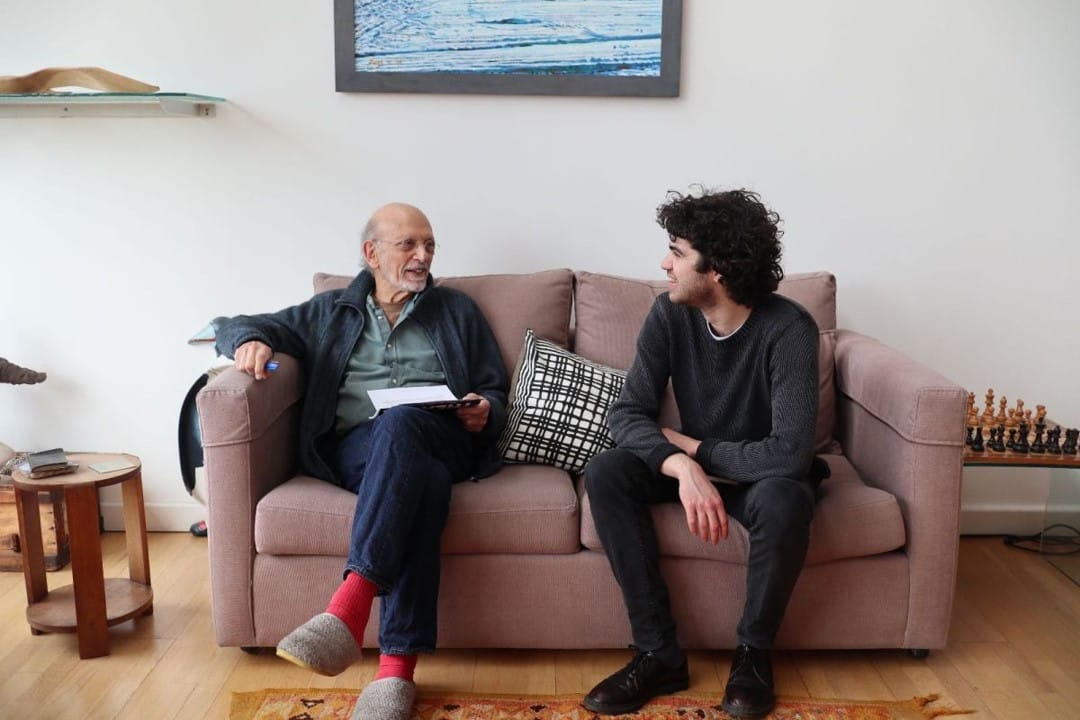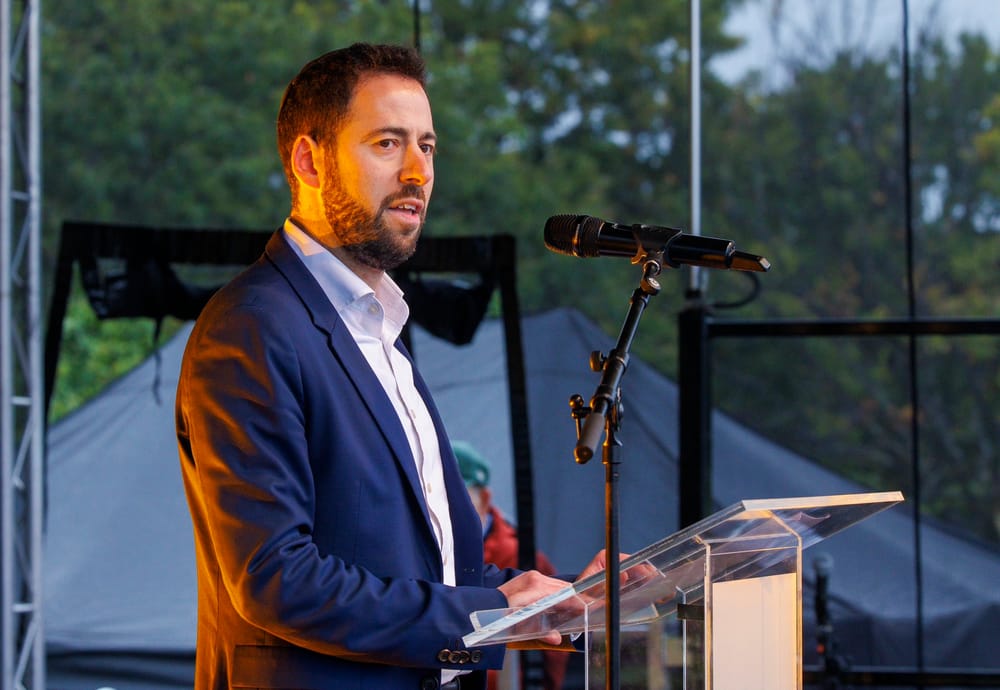A life against apartheid
Eli Machover meets Professor Rosenhead to trace the thread of anti-racism through his life, and reflect on what the struggle against South African apartheid can teach us today.

It was a sunny afternoon in early February when I arrived at Jonathan Rosenhead’s flat in a converted printworks beside the Regent’s Canal. I’d come to speak to the activist and retired academic because two weeks earlier he had appeared at Kingston Crown Court to clear his name over a conviction that he received more than 50 years ago.
In May 1972, Rosenhead was one of around 20 anti-apartheid activists arrested for taking part in a direct action outside the Petersham Hotel (then known as the Star and Garter) in Richmond. The organisers were a loose group who had met through the successful Stop the Seventy Tour campaign to cancel the planned visit of the South African cricket team to the UK in the summer of 1970. Two years later, when the English rugby team announced it would embark on a boycott-breaking tour of South Africa, the group tried to stop the players catching their flight by blocking the team’s coach from leaving the car park of the hotel in which they had been staying. Rosenhead was convicted of a public order offence, fined the princely sum of £10, and forced to pay the same again in costs.
As it transpired, one of those arrested and taken to court, who went by the name Michael Scott, was an undercover police officer. Rosenhead only found this out in 2019, after it came to light during the course of the public inquiry into undercover policing, launched in 2015 by then-home secretary Theresa May. He was then accepted as a core participant, and legally represented in the inquiry along with two fellow convicts.
On 17 January, the three veteran activists were successful in overturning their convictions. Rosenhead received £200 in compensation, the judge adjusting the figure to account for inflation. When the cash lands in his bank account, Rosenhead tells me he intends to treat his lawyer to a decent hot dinner at the Petersham Hotel.

While the fine may have been largely symbolic, I wondered how this experience with the British criminal justice system had impacted Rosenhead’s political outlook. He explains that he sees it more as a “rite of passage” than a mark of shame.
Indeed, over the past half-century, Rosenhead has been a persistent campaigner not only in the struggle against apartheid in South Africa but for a series of other causes. A longtime member of the British Society for Social Responsibility in Science (BSSRS), a movement aimed at raising awareness of the misuse of science and technological innovation, Rosenhead has also served for the past two decades as chair of the British Committee for the Universities of Palestine (BRICUP), an organisation of UK-based academics promoting an academic boycott of Israel. More recently, he was among the founders of Jewish Voice for Labour (JVL).
“I wouldn’t say my life has been defined by anti-racism, but it’s been a continuing thread through it,” he reflects. Yet Rosenhead did not always seem destined for a path of radical politics.

A very British-Jewish upbringing
Born in 1938, Rosenhead was brought up in Liverpool by secular Jewish parents, themselves raised in Leeds by families of tailors and kosher butchers who had arrived from Lithuania and Poland at the turn of the century. One great uncle, he tells me with some pride, had been smuggled into England on a small boat that landed on the east coast, in order to avoid the cruel measures of the Aliens Act of 1905, which limited legal routes for immigrants.
His father, Louis Rosenhead, was a distinguished mathematician and Fellow of the Royal Society. At the tender age of 27, having completed his second PhD and married Jonathan’s mother, Esther Brostoff, he took up the chair of applied mathematics at Liverpool University – a post in which he remained for the rest of his working life. The Rosenheads were “liberal-minded” readers of the Guardian and the New Statesman (the latter of which Jonathan describes as having a “formative influence” on his thinking as an adolescent) but not especially politically engaged – except on Israel.
Zionism was very much a part of the family’s DNA: Esther’s father Max retired at 55 to work full-time collecting money for the Jewish National Fund; his headstone in the Leeds United Hebrew Congregation Cemetery reads: “His life was a record of service to Israel and to his fellow men”. There is even a forest named after Max in Israel – “quite possibly planted over the ruins of a Palestinian village, as many of these commemorative forests were”, Rosenhead remarks.
When the Suez crisis unfolded in late 1956, Louis and Esther turned to the more pro-Israel editorial line of the Times, and their broader outlook shifted to the right accordingly in the years that followed. While they maintained cordial relations with non-Jewish acquaintances, their friends were all fellow Jews, and they “sort of discouraged” Jonathan and his older brother Martin from making non-Jewish friends.
Jonathan’s father had a complicated attitude towards assimilation and anti-semitism. “He made himself as English as possible,” Rosenhead recalls. “He tried to be the opposite of flamboyant – he was very sober and restrained. So the picture I had was of Jewish people who needed to watch their Ps and Qs, and not step out of line, or you probably would find out that there were anti-semites around.” This complex about being Jewish shaped Rosenhead’s self-consciousness as a shy and awkward teen: “I was short, though not as short as I am now, I was short-sighted, and I didn’t have fair hair and blue eyes – although at least I did have hair then.”

Overcoming Zionism
At the age of 18, in search of answers to the questions he had about his identity, Rosenhead used some money he’d been left by one of his grandmothers to fund a trip to Israel in the summer of 1956, touring the sites and spending time on a kibbutz. “I really went to Israel because I had problems about being Jewish”, he reminisces.
Having overcome his inherited insecurities, but not his Zionism, Rosenhead went to study mathematics at Cambridge, where he made his first steps into active politics by joining the Labour club – though it wasn’t until he moved to Sheffield in 1961 as a graduate, and took up a job as an operational researcher in the steel industry, that he joined the party. A year or so later, he settled in London, working at a management consultancy in Croydon but spending at least four nights a week in political meetings. There, he met his future wife Gillian.
By the 1966 general election, he had secured the Labour candidacy for the safe Tory seat of Kensington South. On polling day, as Harold Wilson’s Labour won a decisive landslide, Rosenhead managed to avoid losing his deposit (which he describes as being “a good result for the constituency”), beating the Liberals for second place. Their candidate, barrister Tom Kellock QC, who had just stepped down as chair of the Anti-Apartheid Movement (AAM), was clearly impressed by Rosenhead’s performance on the campaign trail, and approached him to ask whether he would get involved in the organisation.

After a brief stint working in the US, Rosenhead returned to London to take up an academic job at the London School of Economics – where he would go on to teach for five decades – and joined the AAM’s executive committee. But he grew frustrated with its cautious approach and began channelling his energy into direct action, joining the committee of the Stop The Seventy Tour campaign. During the same period, he found the Wilson government’s sharp rightward turn demotivating, and by 1968 he had allowed his Labour membership to lapse – only rejoining in 1981 to vote for Tony Benn in the deputy leadership election, before leaving the party once more in 1987 as it shifted further to the right under Neil Kinnock.
It would be 28 years before Rosenhead re-engaged in party politics, during which time he got round to reading Marx, and his position on Israel-Palestine evolved considerably. Step by step, Israel’s increasingly aggressive policies forced him to reassess and then abandon the vestiges of his Zionism. By 2004 he was supporting the academic boycott of Israel, and increasingly saw the parallels between South African and Israeli apartheid.
The New Labour victory of 1997, meanwhile, left him feeling deflated. “The results were coming in – Labour victory after Labour victory – and everybody was getting more excited; Gillian and I were getting more and more miserable, because this wasn’t the victory that we’d wanted,” he explains. It wasn’t until 2015, with the election of Jeremy Corbyn as leader, that, like hundreds of thousands of others, Rosenhead was once again enthused to return to the Labour fold. He joined the Hackney South and Shoreditch constituency party and became active in a way he’d not been since the mid-1960s.
Yet, already by 2016, Rosenhead and a group of Jewish activists realised the vulnerabilities that the leadership could be exposed to over supporting the Palestinian cause, and so they established the group Free Speech on Israel, which later effectively morphed into JVL. But even they were not prepared for what was coming down the line.

“These bastards wouldn’t know a principle if it hit them in the face”
Throughout the past few years, those on the right of the Labour party have joined with others in conflating anti-Zionism with anti-semitism – using the latter as a political football in an effort to damage the left, and also delegitimise the struggle for Palestinian liberation. Like many others involved in JVL, Rosenhead has been subjected to disciplinary action over spurious accusations of having undermined Labour’s ability to “campaign against racism”, as Keir Starmer aims to eradicate any remnants of the pro-Palestine Jewish membership, whose existence undermines the narrative that his predecessor represents a cabal of anti-semites.
This has all clearly taken a personal toll on Rosenhead, quite unlike his 1972 conviction. “These bastards, who wouldn’t know a principle if it hit them in the face, are accusing me of undermining their ability to campaign on racism, while they’re preventing people from campaigning on anti-Palestinian racism,” he says.
I ask what he thinks of those claiming to protect Jewish safety by acting in such a way, to which he responds: “Anti-semitism is being used as an instrument – we shouldn’t confuse that with thinking they care deeply about anti-semitism. If they did, then they wouldn’t be doing this. These people are diminishing the fight against anti-semitism by eroding the understanding of what it is and what it isn’t.”

Given that JVL has been all but proscribed by Labour, Rosenhead seems unsure about the role the organisation should play in the coming years. “The only sensible thing to work for is a regrouping of the left, which is going to be very difficult – it may be impossible – because there are so many competing ideologies,” he tells me, adding that he fears “it’s going to get worse before it gets better”.
He apologises for this rather gloomy prognosis, and for what a desperate time he imagines it must be for young people getting involved in politics. I end by asking if there is anything that makes him sanguine. “My hope is to live to 100 so I can see this lot off.” L’chaim to that▼
Eli Machover is an editor at Vashti and a political researcher.
Author

Eli Machover is a PhD candidate in politics at the University of Oxford and an editor at Vashti.
Sign up for The Pickle and New, From Vashti.
Stay up to date with Vashti.



